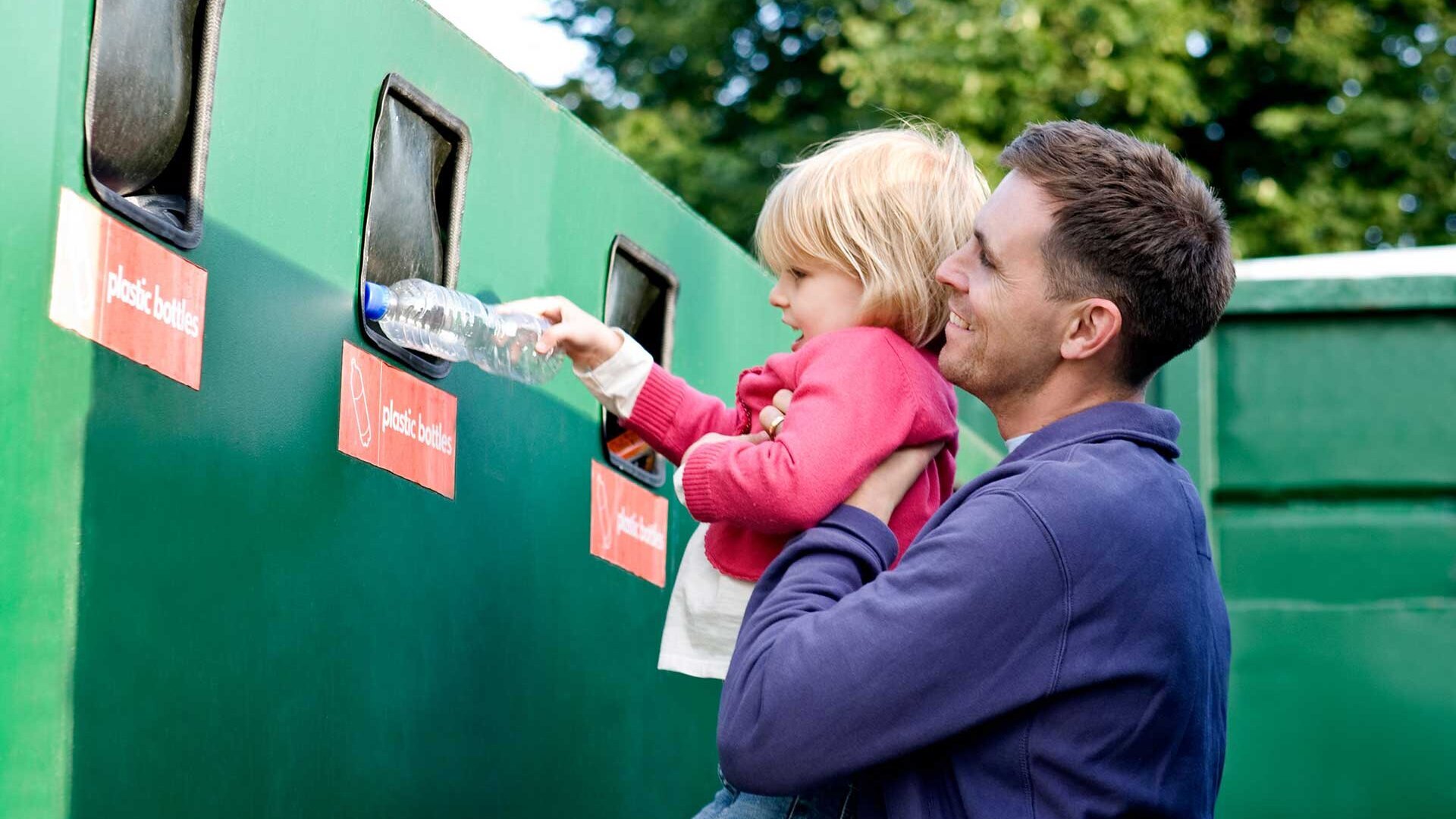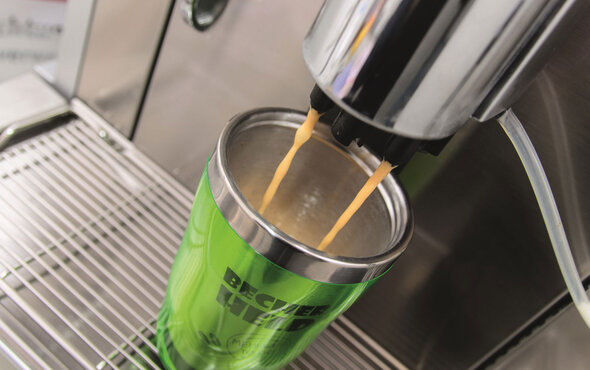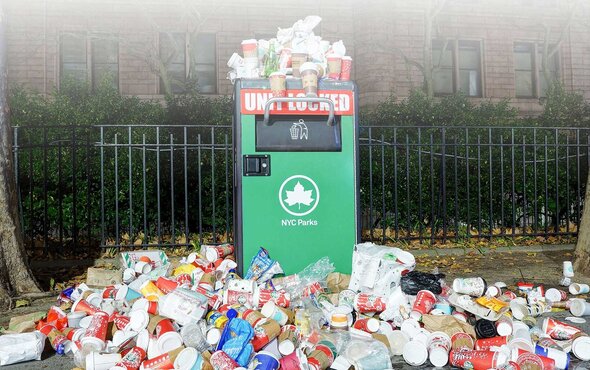How we handle plastic in the future and how we avoid plastic waste are global challenges. But everybody can do something! We need to change how we think and, especially, avoid disposable products. Read more to find out how:
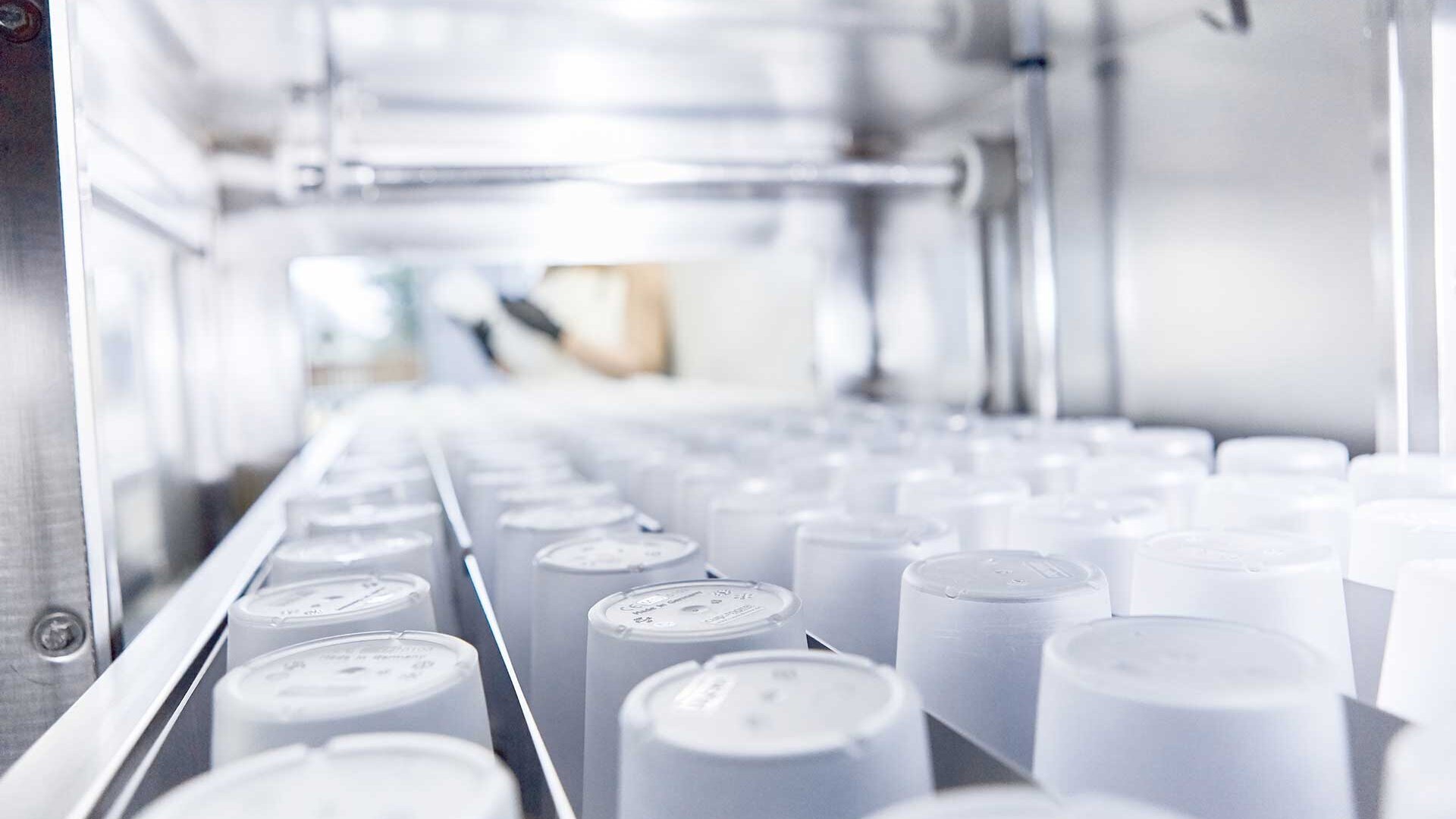
1. AVOIDING DISPOSABLE PLASTIC DISHWARE
Plastic cutlery, plastic plates, plastic cups, straws, etc. – these products are used for just a few minutes before they end up in the bin. For dishes and glasses, it is better to work with reusable options that can be washed. These days, many drinks retailers and other service providers therefore offer glass and dish hire – including the warewashing service for afterwards.
2. FABRIC BAGS FOR SHOPPING
Instead of using flimsy single-use plastic or paper bags, you can use carrier bags made of fabric. Just keep two or three in your car so you always have access to them if you need to pop to the shops. Rucksacks and baskets are also great solutions.
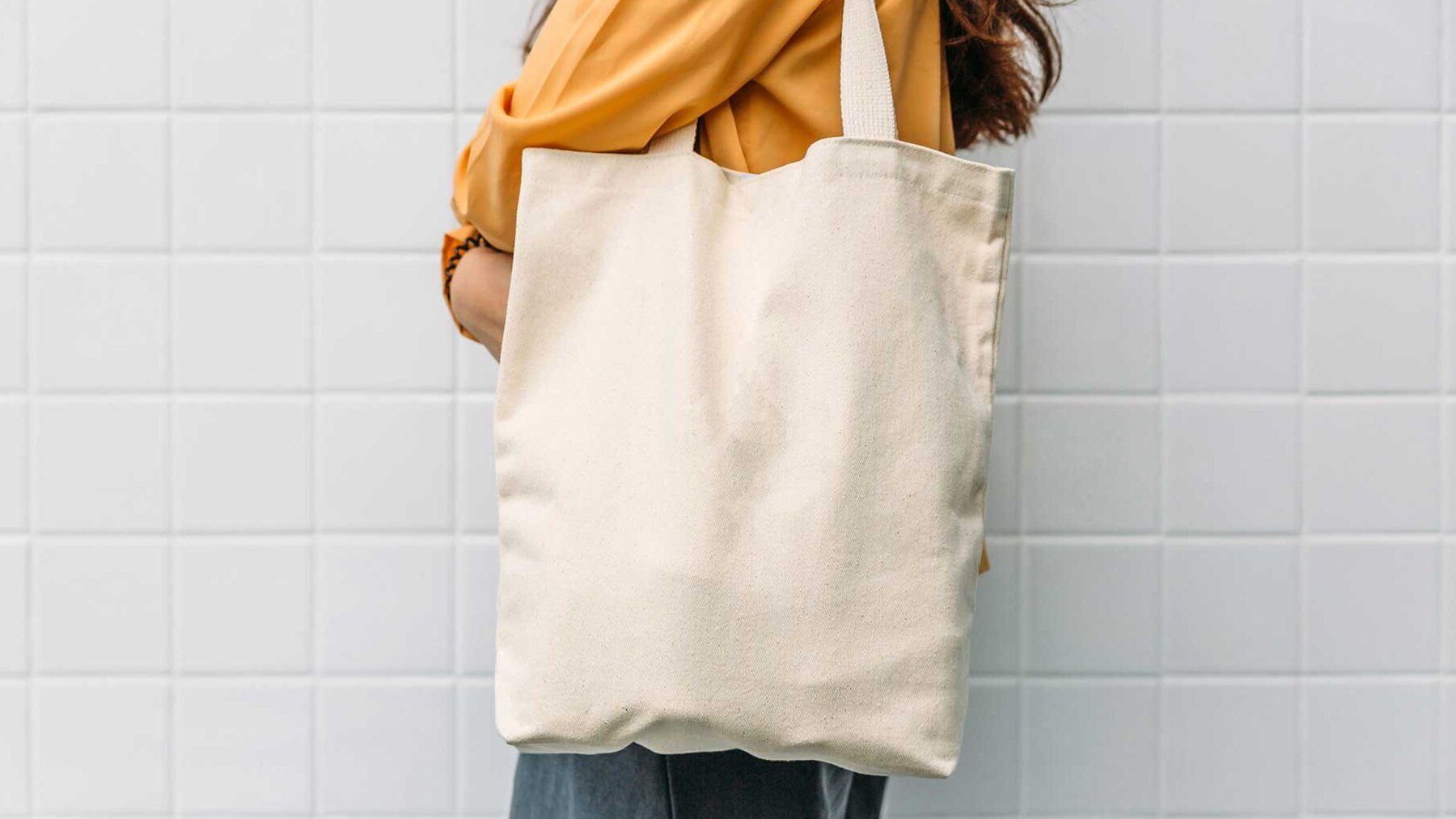
50 YEARS …
… is how long it takes for a polystyrene cup to break down into its smallest components in the sea. And the material will never fully decompose.1
1 Source: Fraunhofer Institute for Environmental, Safety and Energy Technology
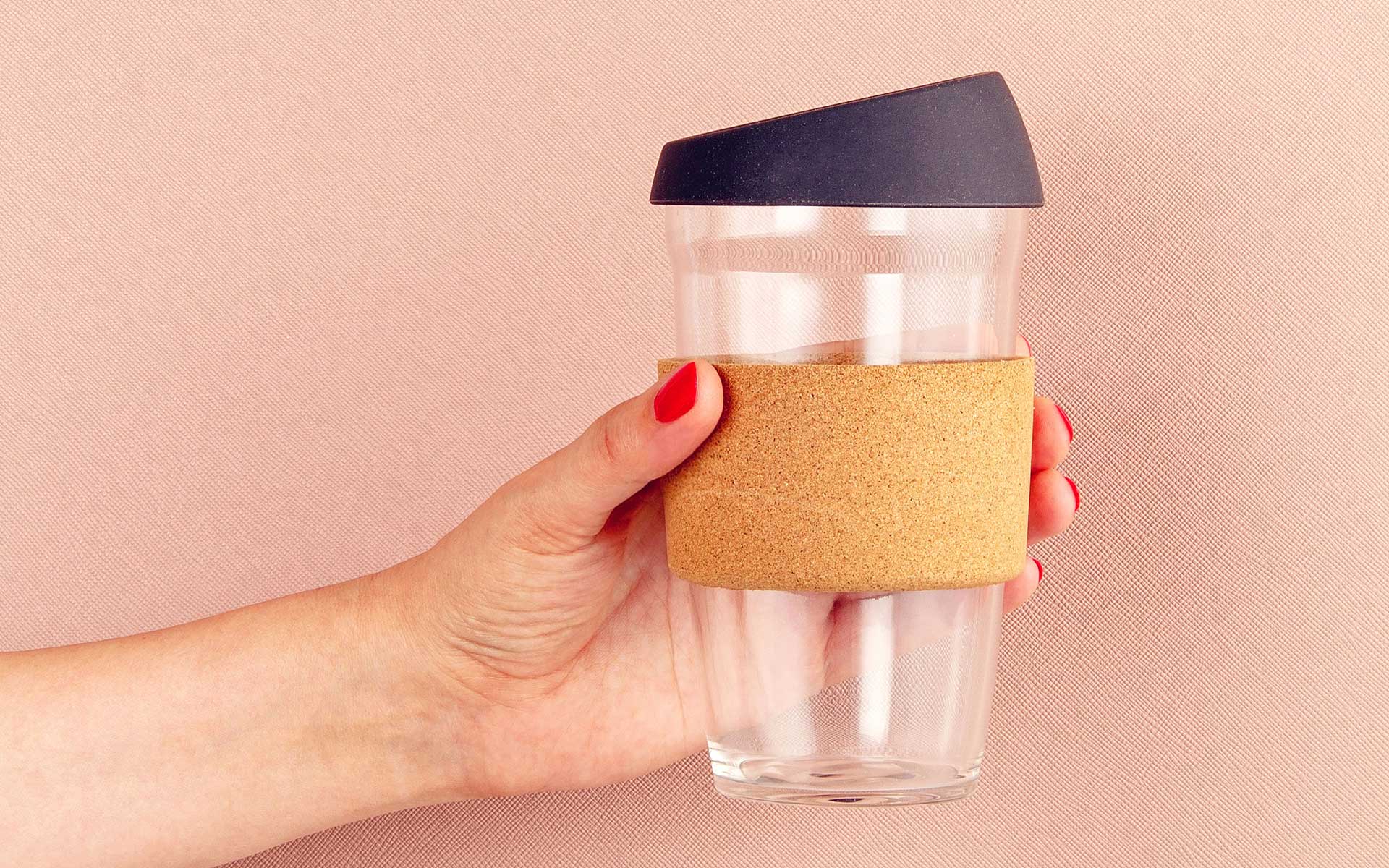
3. REUSABLE RATHER THAN SINGLE-USE
For bottles, tins, glasses and cups, the rule is this: reusable products are generally more environmentally friendly than disposable ones. Avoiding cartons and single-use plastic bottles will prevent huge amounts of waste. At large events these days, we are seeing more and more opportunities to be environmentally conscious with our purchases. The key is to hire reusable cups. Many events companies are already doing so and helping to reduce the mountains of waste created by disposable dishware.
4. REUSABLE CUPS FOR COFFEE
A representative study by market research company TNS Emnid 2 found that around 460,000 takeaway coffee cups are used every day in the German capital of Berlin alone. That is a mind-boggling figure and we can only guess how high it might be in other major cities around the world. The problem is that the lids are almost always plastic – and the cups themselves are lined with a thin layer of plastic. Our tip: keep a reusable cup with you and get it filled up.
2 Source: Deutsche Umwelthilfe (German Environment Aid) (www.duh.de)
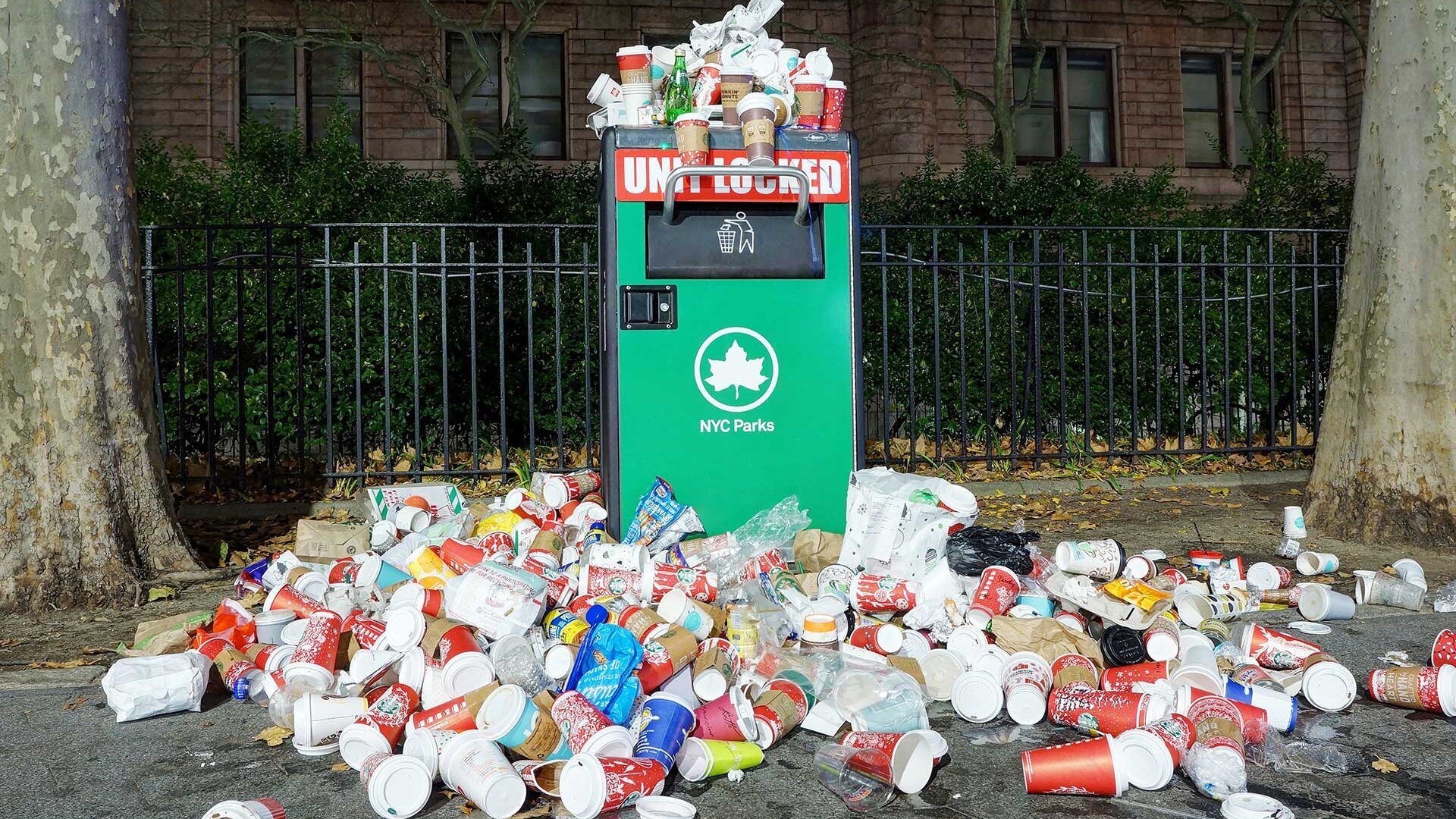
15 MINUTES …
... is the average length of use for a single-use cup. Then it is thrown away.3
3 Source: German Environment Agency

5. IF YOU ARE USING PLASTIC THEN REUSE IT, TOO
Let's be realistic: even we are not able to give up plastic completely. But when we do use plastic packaging or other items, we should reuse them as much as we can.
6. LOOSE FRUIT AND VEGETABLES
Avoid shrink wrapped cucumbers, peppers, apples and bananas. Choose packaging-free options instead. They can easily be carried in the already mentioned carrier bags made of fabric or in a shopping net - this had already proved its worth in grandma's time and is currently being rediscovered.
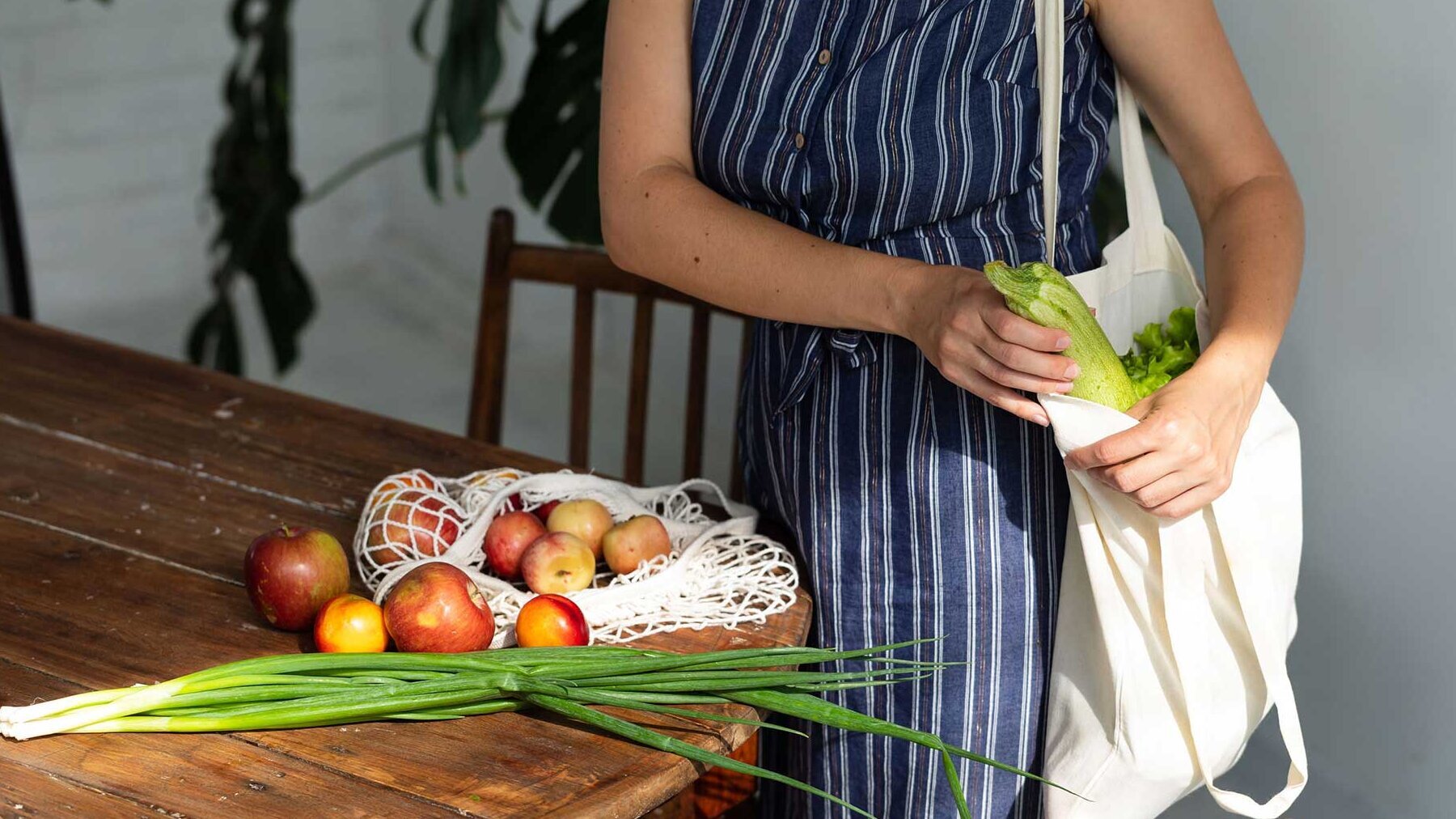

7. COMBINE PURCHASES
It is much better to go for a big shop once a week and be targetted about what you need than to make in-the-moment purchases. You will be surprised just how much single-use packaging you can avoid just by thinking about your shopping.
"IF WE CONTINUE AS WE ARE NOW, ...
... by the year 2050, the plastic in the oceans could weigh more than all of the fish put together.4
4 Source: ‘The New Plastic Economy’ study by the Ellen MacArthur Foundation (2016)
8. SOAP INSTEAD OF SHOWER GEL
Many toiletries come packaged in plastic. You might think that is unavoidable but we disagree. What about good, old soap? You can even get cardboard cotton buds these days. It is also clear, though, that industrial actors are required to tackle the challenge of single-use plastic packaging.

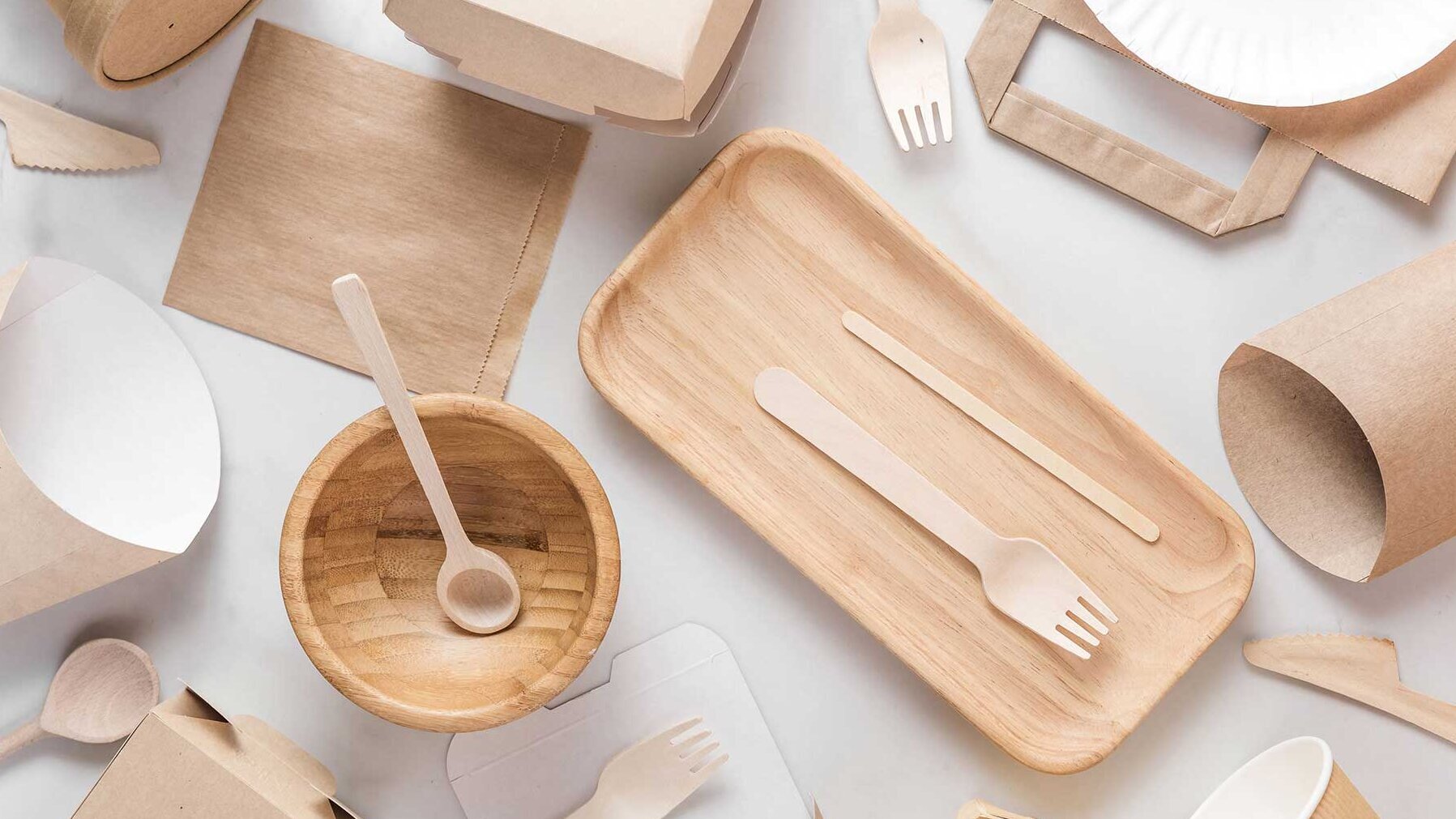
9. CAUTION WHEN IT COMES TO PLASTIC ALTERNATIVES
Bamboo, palm leaves or maize – we are seeing a trend for products and packaging made from raw materials which grow back and leave the user with a clean conscience. If we look more closely at these supposedly greener options, though, we do still find issues: for example, bamboo cups usually contain melamine, a synthetic resin which helps to hold the plant fibres together. The problem is that at temperatures upwards of 70 °C, melamine starts to release formaldehyde, a harmful substance which can cause cancer and other health concerns. Not to mention that bamboo cups cannot be recycled.
LET'S STOP FLOODING THE WORLD WITH PLASTIC.
Less plastic is good for the environment and for us! You can find more interesting information about avoiding plastic waste, the problems with alternatives and clever ideas to do with ‘washing reusable dishware’ in our white paper on ‘avoiding plastic waste.’
150 MILLION TONNES ...
… is how much plastic waste is estimated to be in the world's seas.5
5 Source: Greenpeace
WORLD CHAMPIONS OF RECYCLING!
Germany would love to take that crown but that is wishful thinking. ‘Of the 5.2 million tonnes of plastic waste produced since 2017, only 810,000 tonnes were recycled,’ according to ‘Plastikatlas.’ That comes to 15.6 % of the total.6
Lithuania and Slovenia actually top the charts in Europe, followed by Czechia and Slovakia.7
6 Source: Plastikatlas 2019
7 Source: Eurostat 2016
